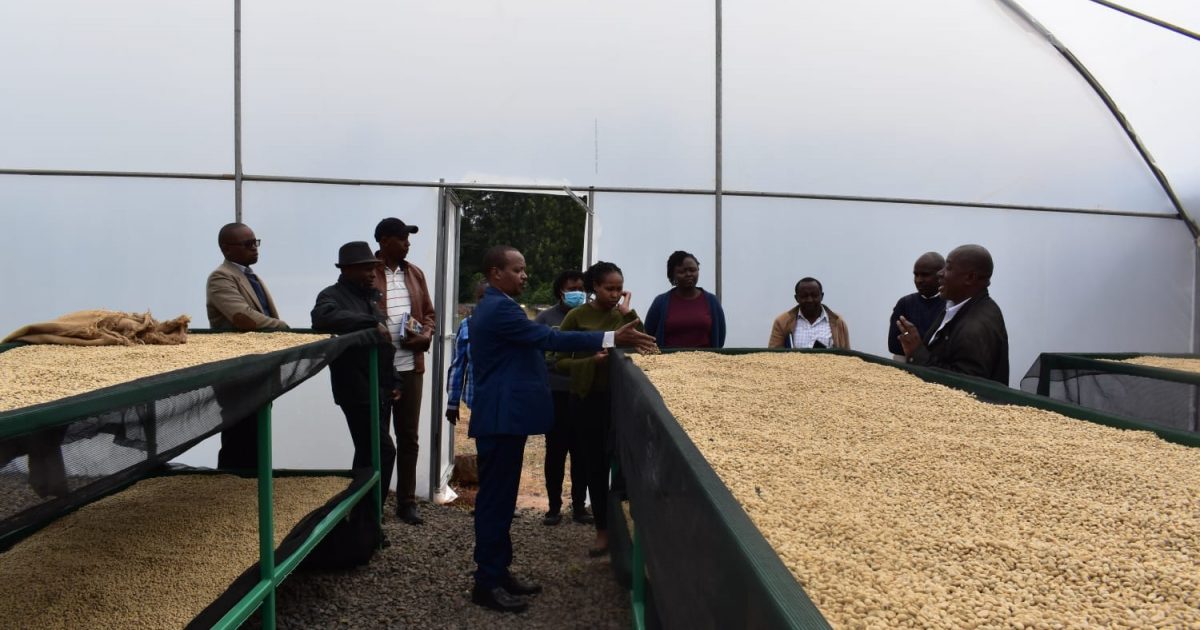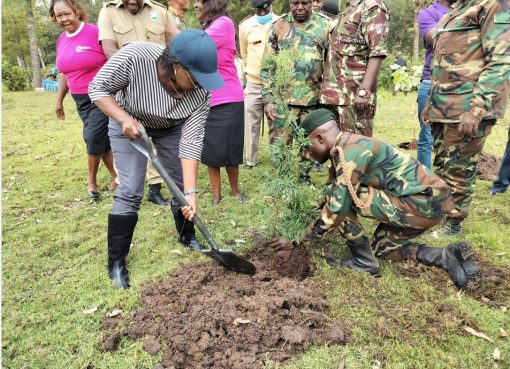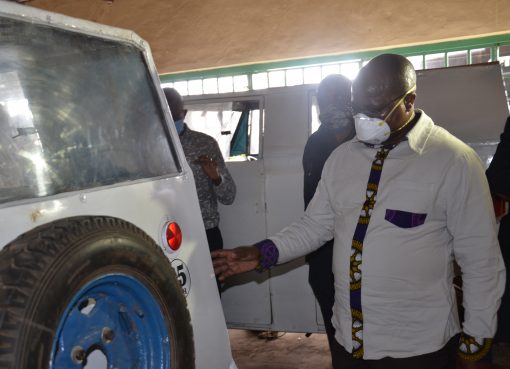Nyeri County is tapping solar energy as one way of tackling the adverse effects of climate change.
The initiative, spearheaded by the Department of Climate Change and part of the Financing Locally-Led Climate Action (FLLoCA) has seen the construction of two solar driers at the Chorongi and Thageini Coffee factories to help reduce the drying time of cherry beans by half and at the same reduce labour cost.
While addressing the Nyeri County Assembly during his State of the County address, Governor Dr. Mutahi Kahiga said the use of the driers will not only transform the way coffee drying is done but lead to increased profits for farmers.
He said unlike the past when coffee factories relied solely on electricity or natural sunlight to desiccate coffee beans, the new driers will be operating on energy stored on specialized batteries.
“Through Financing Locally-Led Climate Action (FLLoCA) two solar driers have been constructed at the Chorongi and Thageini Coffee factories. The two solar driers will enable the coffee factory to reduce the drying time of the cherry beans by 50 percent while at the same time maintaining quality, reducing labour cost and ultimately increasing farmer incomes,” he said.
“Further, through FLLoCA, water intake for the Gatei Water project in Magutu Ward was constructed to increase water accessibility for the citizens; seven boreholes were rehabilitated at Rongai, Kimahuri, and Warazo Jet boreholes in Kieni East, Mahiga, Karera, and Treffos boreholes in Kieni West, and Ndimaini borehole in Mathira East. These activities are expected to increase water supply to citizens in these areas and support small-scale irrigation.”
FLLoCA is a five-year program funded by the Government of Kenya, the World Bank and other donors and whose aim is delivering locally-led climate resilience actions and strengthening county and national governments’ capacity to manage climate risks.
Nyeri has so far sunk more than Sh 100 million in climate friendly projects and managed to spearhead the planting of more than five million tree seedlings in efforts geared towards cushioning the county against the effects of climate change.
Part of that money has been channeled towards the issuance of assorted fruit seedlings to farmers as long-term solutions in addressing food insecurity.
The solar drier project is in compliance with the National Climate Action Change Act of 2016 that mandates counties to integrate climate change actions into their development programs and governance structures.
While announcing the launching of the solar drier project in July this year, Nyeri County Climate Change Director Yvonne Mathenge said the county government hoped to extend the program to at least four other factories in due time.
“We had a budget to undertake installation of three or four solar driers and have already done two. We are preparing to do another one or two more in other areas. It’s one of the priority actions we are taking in climate action change and optimization of production in the agriculture sector and the manufacturing sector.” she told KNA.
One of the advantages of the solar driers over the conventional ones that depend on natural sunlight or electricity to dry coffee beans is the fact that the former are not affected by changes in weather or unintended blackouts.
In addition, Kahiga has rallied the residents to increase tree cover on their plot of lands in a bid to fighting worsening climatic patterns and counter the threat of deforestation.
In partnership with Upper Tana Nairobi Water Fund Trust and Kenya Forest Service, the county has seen the planting of over 2 million trees during the last financial year.
“In adherence to Article 42 of the Constitution of Kenya 2010, the Department of Environment has made significant progress in environmental conservation. Over 40,000 assorted tree species and 17,017 fruit tree seedlings were distributed and planted by institutions and community groups,” said the County boss.
“These efforts do not only improve tree cover and biodiversity but also promotes food security and carbon sequestration, which is critical in mitigating climate change. Further, in collaboration with partners such as Upper Tana Nairobi Water Fund Trust and Kenya Forest Service, over 2 million trees were planted in the last Financial Year,” he said.
Nyeri County boasts of 40.8 percent forest cover against the country’s figure, which stands at 8.83 percent.
Kenya has embarked on an aggressive campaign geared towards planting 15 billion trees by 2032.
Among the objectives is to reduce greenhouse gas emissions and to reverse deforestation which poses an existential threat to future generations.
According to the UN Convention to Combat Desertification, up to 40 per cent of the planet’s land is degraded, directly affecting half of the global population.
The global body warns that without urgent action, droughts may affect over three-quarters of the world’s population by 2050.
By Samuel Maina




